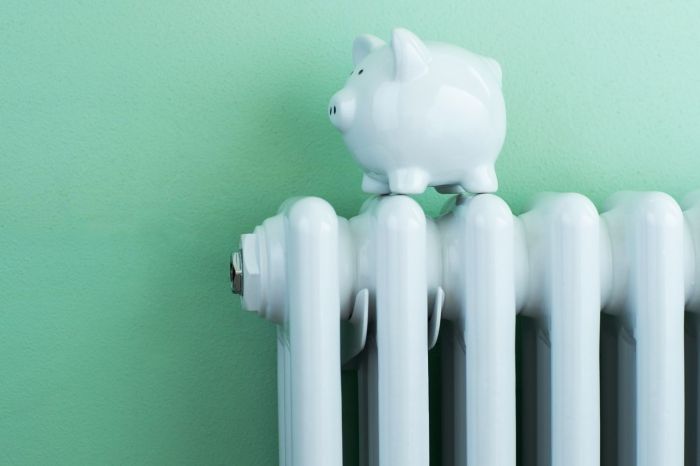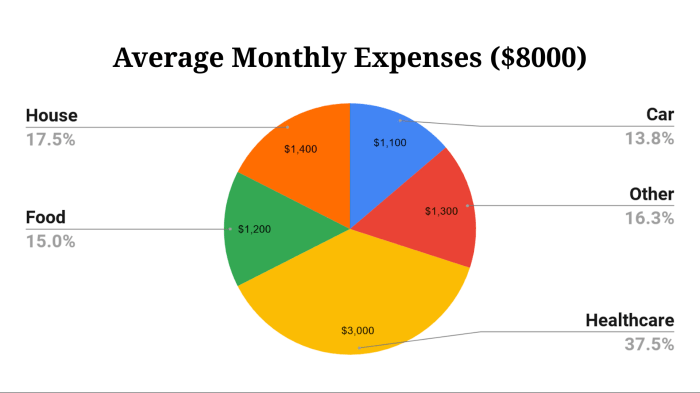Expenses such as heat lights and salaries are crucial considerations for any household or business. These costs can significantly impact budgets, so it’s essential to understand their components and strategies for optimization.
From energy-efficient heating systems to innovative lighting solutions, this guide delves into the factors that influence these expenses and provides practical tips for reducing costs while maintaining comfort and productivity.
Heat Expenses
Heating is a major expense for homes and businesses, especially in cold climates. There are many different types of heat sources, each with its own advantages and disadvantages.
Types of Heat Sources
- Natural gas:Natural gas is a fossil fuel that is burned to produce heat. It is a relatively inexpensive fuel, but it is not as efficient as some other options.
- Oil:Oil is another fossil fuel that is burned to produce heat. It is more expensive than natural gas, but it is more efficient.
- Electricity:Electricity can be used to power heat pumps, which are very efficient. However, electricity is more expensive than natural gas or oil.
- Solar energy:Solar energy can be used to heat water or air, which can then be used to heat a home or business. Solar energy is a renewable resource, so it is good for the environment.
- Geothermal energy:Geothermal energy can be used to heat water or air, which can then be used to heat a home or business. Geothermal energy is a renewable resource, so it is good for the environment.
Energy-Efficient Heating Systems
- Heat pumps:Heat pumps are very efficient because they move heat from one place to another, rather than generating heat. Heat pumps can be used to heat or cool a home or business.
- Boilers:Boilers burn fuel to produce hot water, which is then circulated through pipes to heat a home or business. Boilers are not as efficient as heat pumps, but they are less expensive to install.
- Furnaces:Furnaces burn fuel to produce hot air, which is then circulated through ducts to heat a home or business. Furnaces are not as efficient as heat pumps or boilers, but they are less expensive to install.
Factors that Affect Heating Costs
- The size of the home or business:Larger homes and businesses require more heat to heat, so they will have higher heating costs.
- The climate:Homes and businesses in cold climates will have higher heating costs than those in warm climates.
- The type of heating system:Some heating systems are more efficient than others, so they will have lower heating costs.
- The insulation of the home or business:Well-insulated homes and businesses will have lower heating costs than those that are not well-insulated.
- The fuel prices:The cost of fuel will affect the cost of heating.
Lighting Expenses: Expenses Such As Heat Lights And Salaries

Lighting is another major expense for homes and businesses. There are many different types of lighting fixtures and bulbs, each with its own advantages and disadvantages.
Types of Lighting Fixtures
- Incandescent bulbs:Incandescent bulbs are the most common type of light bulb. They are inexpensive, but they are not very efficient.
- Compact fluorescent bulbs (CFLs):CFLs are more efficient than incandescent bulbs, but they are more expensive. CFLs also contain mercury, so they should be disposed of properly.
- Light-emitting diodes (LEDs):LEDs are the most efficient type of light bulb. They are more expensive than incandescent bulbs or CFLs, but they last longer and use less energy.
Lumen Output
The lumen output of a light bulb is a measure of how much light it produces. The higher the lumen output, the brighter the light bulb. Lumen output is important to consider when choosing a light bulb because it will affect the amount of energy that the bulb uses.
Tips for Reducing Lighting Costs
- Use natural light whenever possible.
- Turn off lights when you leave a room.
- Use energy-efficient light bulbs.
- Install dimmers to control the brightness of lights.
- Use motion sensors to turn lights on and off automatically.
Salary Expenses

Salary expenses are a major expense for many businesses. Salary expenses include base pay, benefits, and taxes.
Components of Salary Expenses
- Base pay:Base pay is the amount of money that an employee is paid for their work. Base pay is typically determined by the employee’s job title, experience, and performance.
- Benefits:Benefits are a form of compensation that is provided to employees in addition to their base pay. Benefits can include health insurance, dental insurance, vision insurance, life insurance, paid time off, and retirement benefits.
- Taxes:Taxes are a form of payment that is made to the government by employees and employers. Taxes are used to fund government programs such as Social Security, Medicare, and unemployment insurance.
Factors that Influence Salary Levels
- The cost of living:The cost of living in a particular area will affect salary levels. Employees in areas with a high cost of living will typically have higher salaries than employees in areas with a low cost of living.
- The industry:The industry in which an employee works will also affect their salary. Employees in some industries, such as technology and finance, typically have higher salaries than employees in other industries, such as retail and hospitality.
- The employee’s experience and skills:Employees with more experience and skills will typically have higher salaries than employees with less experience and skills.
Strategies for Optimizing Salary Expenses, Expenses such as heat lights and salaries
- Conduct market research to determine the average salary for similar positions in your area.
- Set clear expectations for performance and compensation.
- Offer competitive benefits packages.
- Provide opportunities for professional development.
- Consider variable pay options, such as bonuses and profit sharing.
Cost Optimization

Table of Heating System Costs
| Heating System | Initial Cost | Annual Operating Cost |
|---|---|---|
| Natural gas furnace | $1,500-$3,000 | $500-$1,000 |
| Oil furnace | $2,000-$4,000 | $1,000-$2,000 |
| Electric heat pump | $3,000-$5,000 | $200-$500 |
| Solar heating system | $10,000-$20,000 | $0 |
| Geothermal heating system | $15,000-$30,000 | $0 |
Tips for Reducing Lighting Costs
- Use natural light whenever possible.
- Turn off lights when you leave a room.
- Use energy-efficient light bulbs.
- Install dimmers to control the brightness of lights.
- Use motion sensors to turn lights on and off automatically.
Table of Factors that Affect Salary Expenses
| Factor | Description |
|---|---|
| Cost of living | The cost of living in a particular area will affect salary levels. |
| Industry | The industry in which an employee works will also affect their salary. |
| Experience and skills | Employees with more experience and skills will typically have higher salaries than employees with less experience and skills. |
Query Resolution
What are the most energy-efficient heating systems?
Heat pumps, geothermal heating, and radiant floor heating are highly energy-efficient options.
How can I reduce lighting costs?
Use LED bulbs, optimize natural light, and implement motion sensors or timers.
What factors influence salary expenses?
Job market demand, experience, location, and company size are key factors.